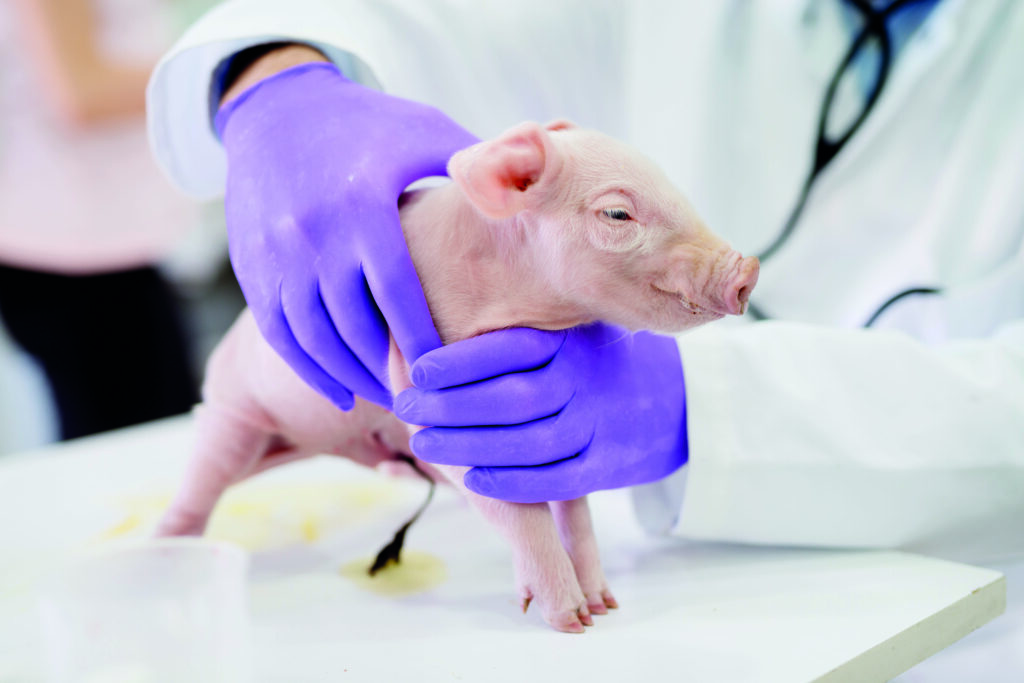The animal medicines industry believes that the UK can occupy a position of global leadership when it comes to the future of animal health and welfare. This new insight comes from NOAH – the member organisation who represents the UK animal medicines industry – in its first Brexit Barometer.
Against a backdrop of broader uncertainty on the future of the overall industry outlined in the report, the Brexit Barometer – which draws on insight from 16 animal medicines companies as well as other stakeholders – reveals overwhelmingly high levels of confidence when it comes to animal health and welfare. 95% of those who contributed to the report, drawn up after NOAH’s Brexit event in May, stated that they are optimistic about its future.
Animal medicines are integral to the health and welfare of animals on our farms and the pets sharing 12 million UK households, as well as nearly 10,000 assistance animals and 1500 working dogs. The report sets out a clear opportunity for the UK to be the benchmark for animal health and welfare on a global stage – through, for example, setting progressive, flexible and innovative legislation. This could include recent Government suggestions for incentivising good health and welfare – with prevention of disease an important part of that.
The Brexit Barometer’s publication coincides with warnings from the House of Lords (in its EU Select Committee’s Brexit: farm animal welfare report) that potential trade deals post-Brexit could threaten health and welfare standards for farm animals, showing that Government needs to take decisive action to safeguard the competitiveness of those farming to UK’s high health and welfare standards as well as ensuring continued access to medicines for our vets, farmers and pet owners.
While optimism remains high, the animal medicines industry needs a continuation of its high standards of health and welfare to help tackle antibiotic resistance and to put the UK in a strong influencing position with our ability to trade. Six key measures in relation to health and welfare that Government needs to take to realise the opportunities were outlined in the report. These are:
• Maintaining the current Animal Welfare Acts and evolving them to secure the UK’s position from ‘Day 0’
• Ensuring the industry is not disadvantaged by lack of veterinary medicines availability during the transition period and beyond, as new products come on the market
• Ensuring that veterinary services are available in inner city and rural areas throughout the UK
• Ensuring that a cross-border programme is in place to maintain cooperation between the UK and Europe
• Recognising that animal diseases do not respect borders and to co-operate with our European neighbours to ensure that appropriate measures are in place to prevent and control disease outbreaks
• Balancing first-class welfare standards with creating a level playing field for UK farmers and ensuring that British product does not become uncompetitive.
NOAH Chief Executive, Dawn Howard said: “While the Barometer showed that a large proportion of the industry was undecided when it comes to overall future of our sector, it tells us loudly and clearly that the sector sees a very clear opportunity for the UK to show leadership when it comes to animal health and welfare. What is vital now is that Government collaborates closely with industry and heeds its advice to realise this opportunity and leverage these high levels of optimism. We must not forget that veterinary medicines support the health and welfare of the UK’s livestock and pets and we stand ready to work with industry and Government to help make this happen. “
Gudrun Ravetz, British Veterinary Association (BVA) President, who spoke at NOAH’s May Brexit event said: “We have a unique selling point as ‘UK PLC’ around our high standards of animal welfare and food safety and these must be maintained in the wake of Brexit. This means tackling issues including veterinary involvement from farm to fork to underpin animal health, welfare and public health, through to guaranteeing working rights for vets and veterinary nurses. It is therefore vital that animal welfare is included in all trade negotiations.”




